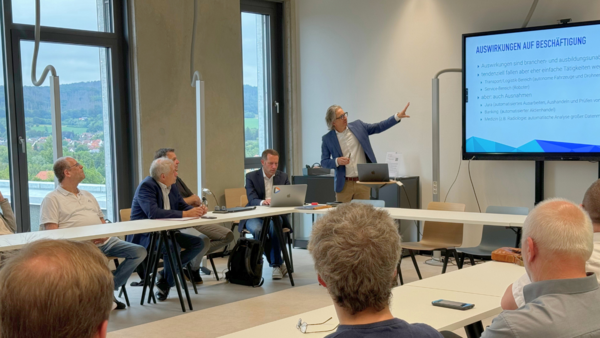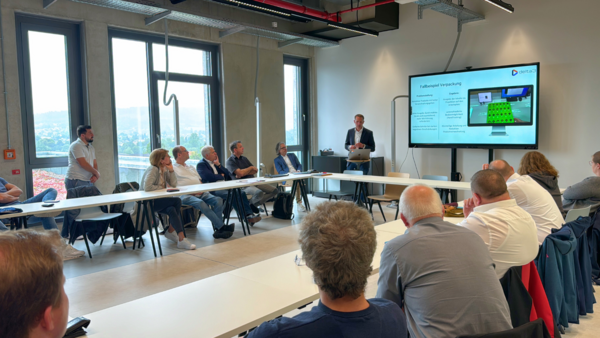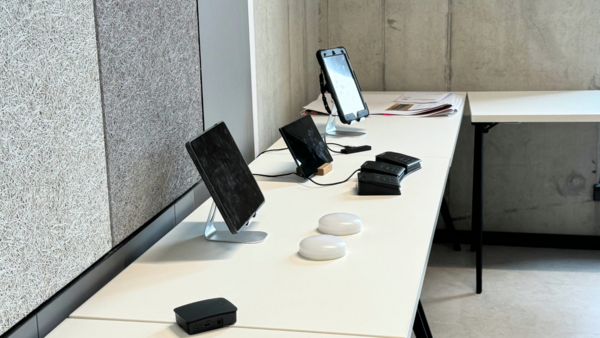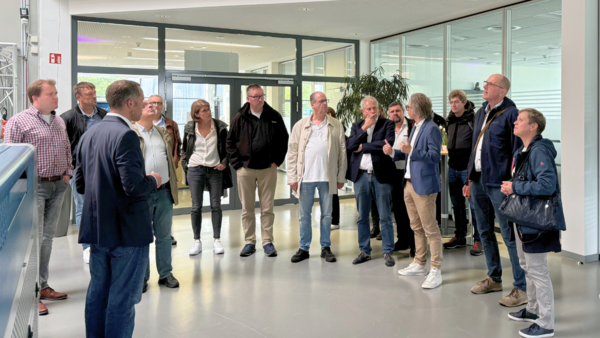Digital assistance systems: from theory to practice
Prof. Dr mult. Carsten Röcker opened the event with a presentation on the transformative impact of digital assistance systems. He discussed their wide range of potential applications, from automation in the transport and logistics sector to specialised medical analysis, while emphasising the continued need for human control. He emphasised how user-centred technologies can improve inclusion in the workplace by adapting to individual needs.
Eckard Bicker from delta3 GmbH picked up on these topics with his presentation on the practical implementation of digital assistance systems in the day-to-day work of various industries. Using specific application examples, he showed how these systems can be integrated efficiently.
Active discussions, demonstrators and insights into the campus
The subsequent discussions and an exhibition of various assistance systems provided participants with in-depth insights and encouraged dialogue. A guided tour of the SmartFactoryOWL and the InnovationSPIN also gave the TBD representatives the opportunity to familiarise themselves with the Innovation Campus Lemgo.
Prof. Dr Carsten Röcker concludes
"Digital assistance systems open up new opportunities to make workplaces not only more efficient, but also significantly more inclusive. By adapting to individual needs, environments can be created in which all employees can reach their full potential. I am particularly pleased about the lively interest, as the transfer of our research results to the labour market is an important aspect of our work," says Prof. Dr. mult. Carsten Röcker.
The event highlighted the great potential of digital innovations to create sustainable and inclusive working environments.





